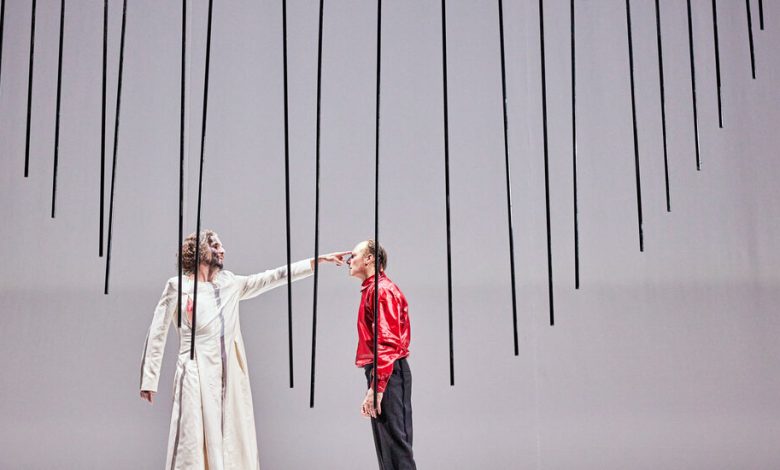Two Shakespearean Triumphs in Paris, or a Plague on Both Their Houses?

Two Paris playhouses, both alike in dignity, putting on rival new Shakespeare productions.
Thus expectations were high for a springtime face-off — with contemporary stagings of “Macbeth” and “Hamlet” — between the Comédie-Française, France’s top permanent company, and the Odéon-Théâtre de l’Europe, the Left Bank’s most venerable theater.
The results certainly felt French. The country has long been a haven for concept-driven theater-makers, and the two directors involved, Silvia Costa and Christiane Jatahy, have no qualms about cutting and splicing the Bard’s plays in experimental, sometimes cryptic ways.
At the Comédie-Française, Costa’s “Macbeth” edits the two dozen named characters down to only eight actors and leans heavily into religious symbolism. In “Hamlet,” Jatahy goes so far as to keep Ophelia alive. Far from going mad, Ophelia climbs down from the stage and exits through the auditorium after declaring: “I died all these years. This year, I won’t die.”
Jatahy, a Brazilian director who has a significant following in France, has performed this sort of bait-and-switch with classics before. Her adaptations of Chekhov’s “Three Sisters” (“What If They Went to Moscow?”) and Strindberg’s “Miss Julie” (“Julia”) reworked the plays’ story lines and characters from a feminist perspective, lending greater weight to female roles.
At the Odéon, Jatahy also cast a woman, the outstanding Clotilde Hesme, as Hamlet, explaining in a playbill interview that her goal was to refocus the story on three female characters: Hamlet, Ophelia and Hamlet’s mother, Gertrude. And while a female Hamlet is hardly news — the French star Sarah Bernhardt performed the role back in 1886 — Jatahy’s premise looks promising for the first few scenes.
Slouching on a couch, Hesme cuts a grave figure as she rewinds a video: the message Hamlet receives from her murdered father, here projected on a large scrim. After the ghost blames his brother, Polonius, the scene transitions seamlessly into a wedding — that of Polonius and the widowed Gertrude, who seals her new life with a karaoke rendition of Frankie Valli’s “Can’t Take My Eyes Off You.”



